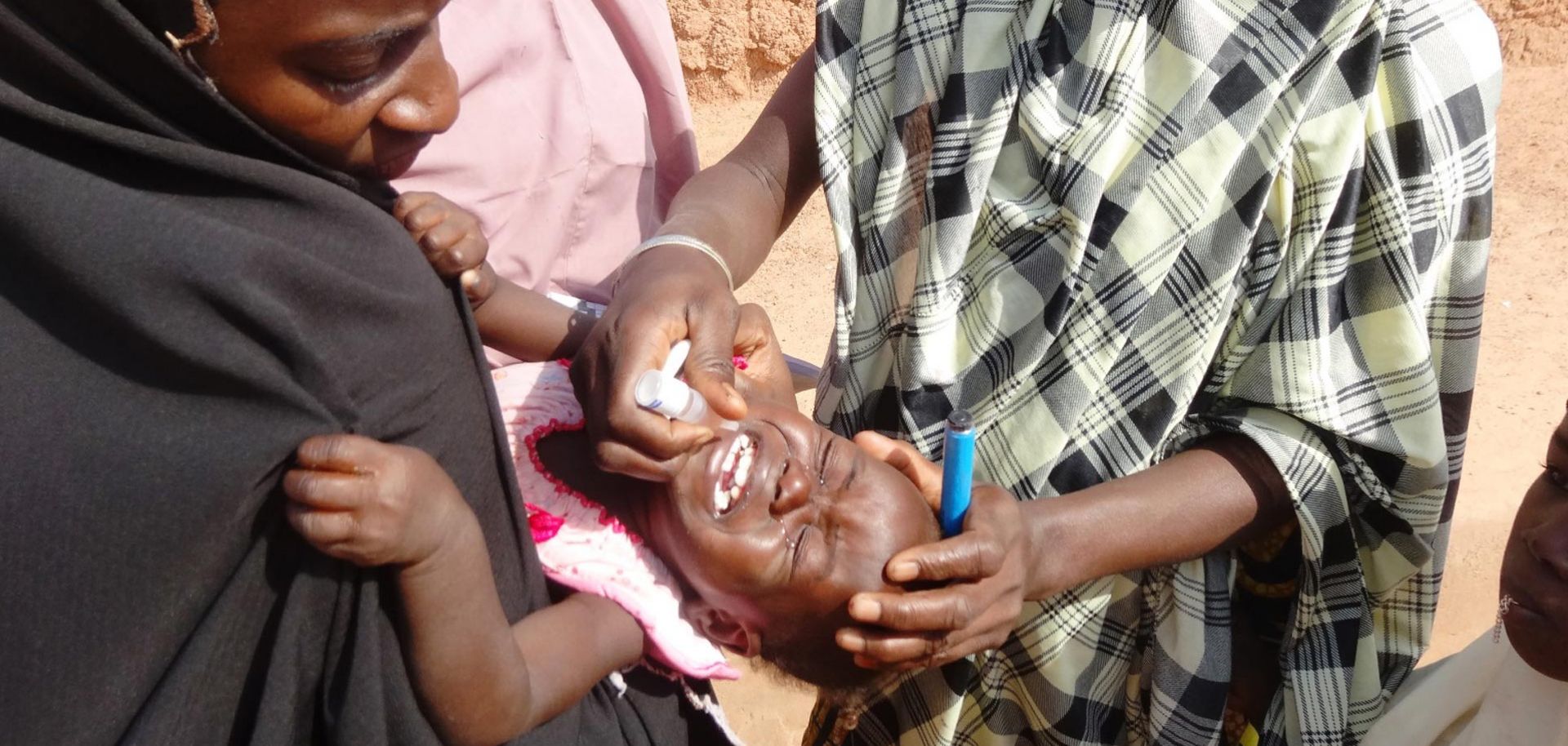Ridding the world of polio is going to take a little longer than originally expected. On Aug. 11, the World Health Organization confirmed at least two new cases of children who have been paralyzed by a wild-type poliovirus in Nigeria's northeastern Borno state. Prior to the revelation, Nigeria -- once one of only three countries left where polio was endemic -- was on the path to becoming polio-free by 2017.
When examining outbreaks and epidemics from a geopolitical perspective, we often look at how the disease in question might disrupt economic activities, such as workforce productivity or the movement of people and goods. From there, we determine whether the impact of the disease will be notable enough to influence political, economic or social decisions. But in the case of polio, perhaps the more relevant question is how those decisions have aided -- or prevented -- the virus's eradication....


